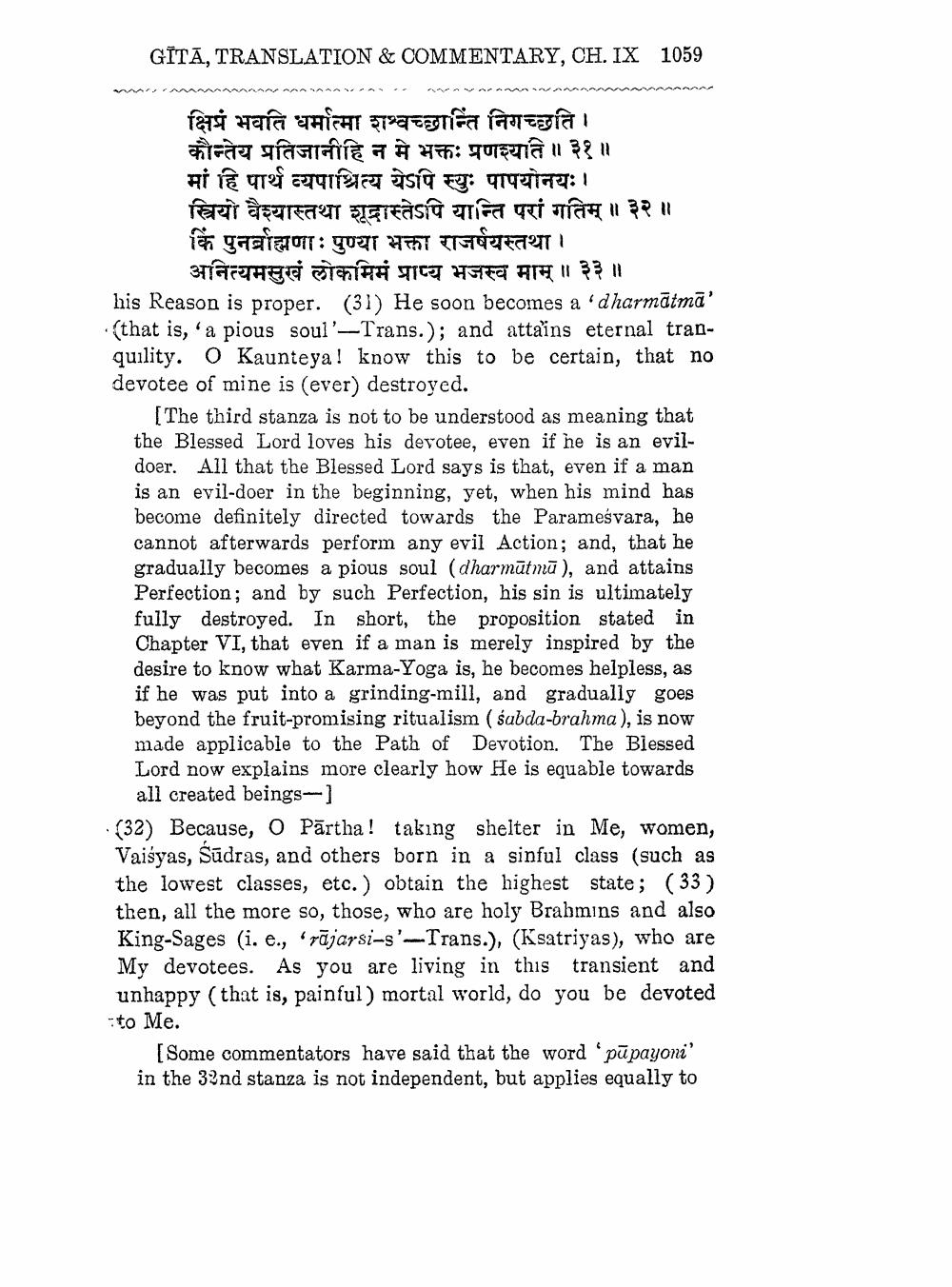________________
GĪTĀ, TRANSLATION & COMMENTARY, CH. IX 1059
क्षिप्रं भवति धर्मात्मा शश्वच्छान्ति निगच्छति । कौन्तेय प्रतिजानीहि न मे भक्तः प्रणश्यति ॥ ३१॥ मां हि पार्थ व्यपाश्रित्य येऽपि स्युः पापयोनयः। स्त्रियो वैश्यास्तथा शूद्रास्तेऽपि यान्ति परां गतिम् ॥ ३२ ॥ किं पुनर्ब्राह्मणाः पुण्या भक्ता राजर्षयस्तथा।
अनित्यमसुखं लोकमिमं प्राप्य भजस्व माम् ॥ ३३ ॥ his Reason is proper. (31) He soon becomes a 'dharmātma' (that is, a pious soui'--Trans.); and attains eternal tranquility. O Kaunteya! know this to be certain, that no devotee of mine is (ever) destroyed.
[The third stanza is not to be understood as meaning that the Blessed Lord loves his devotee, even if he is an evildoer. All that the Blessed Lord says is that, even if a man is an evil-doer in the beginning, yet, when his mind has become definitely directed towards the Parameśvara, he cannot afterwards perform any evil Action; and, that he gradually becomes a pious soul (dharmātmā), and attains Perfection; and by such Perfection, his sin is ultimately fully destroyed. In short, the proposition stated in Chapter VI, that even if a man is merely inspired by the desire to know what Karma-Yoga is, he becomes helpless, as if he was put into a grinding-mill, and gradually goes beyond the fruit-promising ritualism (sabda-brahma), is now made applicable to the Path of Devotion. The Blessed Lord now explains more clearly how He is equable towards
all created beings-) (32) Because, O Pārtha! taking shelter in Me, women, Vaisyas, Sūdras, and others born in a sinful class (such as the lowest classes, etc.) obtain the highest state; (33) then, all the more so, those, who are holy Brahmins and also King-Sages (i. e., "rājarsi-s'-Trans.), (Ksatriyas), who are My devotees. As you are living in this transient and unhappy (that is, painful) mortal world, do you be devoted to Me.
[Some commentators have said that the word 'pūpayoni' in the 32nd stanza is not independent, but applies equally to




